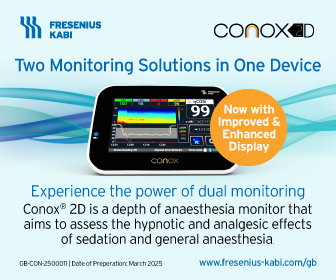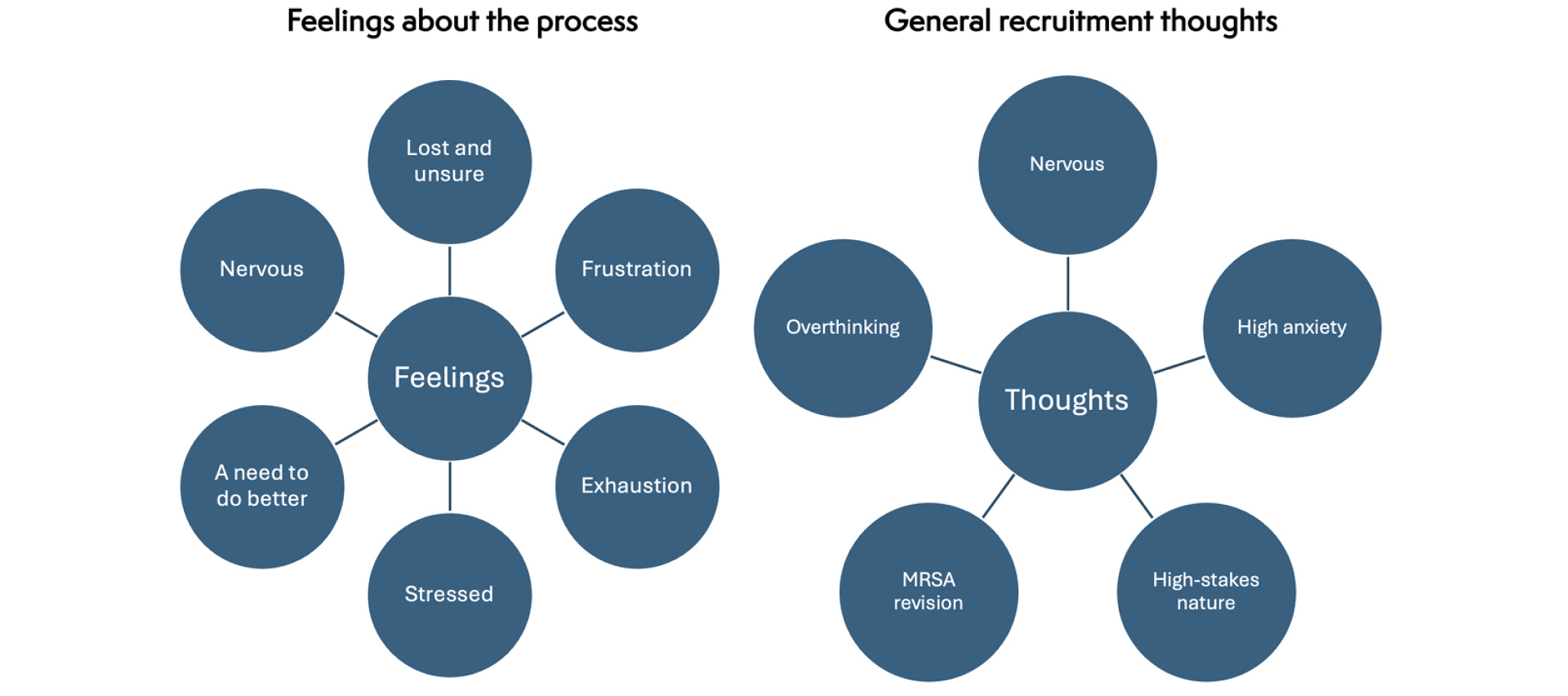- Bulletin: Summer 2025
- Training and careers
Enhancing the recruitment process for anaesthetics
An update on the implementation of the EGM's recruitment resolutions
Author: Steve Beglan-Witt, RCoA Associate Director of Education, Training and Examinations
Over the last 18 months, we have been working with members and other stakeholders to explore how we can improve the anaesthetic recruitment process.
Our starting point was two resolutions that were carried at the Extraordinary General Meeting (EGM) in 2023. The resolutions asked us to explore the possibility of moving from a national to a regional system of recruitment, and to further examine past failings in the administrative process.
Our report presents comprehensive findings and recommendations from this work. It was completed before NHSE was scheduled for dissolution and prior to the 2025 national recruitment process. In this update, I want to highlight some interesting elements within the recruitment process that were revealed by our wide-ranging exploration.
A collaborative approach
We spoke to anaesthetists in training (AiT) representatives from Council and our AiT Committee, as well as members from the Academy of Medical Royal Colleges (AoMRC) Education and Training Leads Network to discuss our approach and learn from sister colleges. We also consulted with our Anaesthetists in Training Committee, NHS England, the Anaesthetics National Recruitment Office (ANRO) and Medical and Dental Recruitment and Selection (MDRS) co-chairs. We also held two focus groups with anaesthetists in training to explore their experiences in greater depth.
Discussions with other AoMRC members clarified that while all Medical Royal Colleges are purely advisory to the recruitment process, accountability and responsibility for recruitment are often unclear to fellows and members. The RCoA is not responsible for anaesthetics recruitment, and that limits our ability to directly implement change. For example, even if we had concluded a return to regionally based recruitment was preferable, we would not have been in a position to implement this. We could, however, have lobbied MDRS to advocate for such a change. The College, primarily through our Recruitment committee, do work hard to influence the process and to provide guidance and support to both ANRO and our members. We will continue to exert this influence for the benefit of future anaesthetists.
Specialty recruitment – national vs regional
We discovered that anaesthetics is singularly different from other specialties to a degree we had not appreciated. Anaesthetics has a national recruitment process separated into clusters – England and Wales, Northern Ireland, and Scotland. At CT1/ST1 level, out of 17 specialties, 11 are UK or GB wide (ie, not NI) with a single centre conducting all the recruitment, two use only the Multispecialty Recruitment Assessment (MSRA) tool for appointments, and two are UK wide with multiple centres. Anaesthetics has multiple centres within the cluster of England and Wales, with a single centre in each of the clusters for Scotland and Northern Ireland.
Out of 46 specialty entry points at either ST3 or ST4, only anaesthetics has anything other than a single centre for interviews. Most are GB wide (28), some UK wide (13) and low numbers are England/Scotland only (2) and England only (2).
More than a number in the system
Our exploration of recruitment principles found that national recruitment is better than a regional approach in terms of minimising bias, maximising fill rates, balancing choices, and establishing consistency in interview standards. However, our focus groups revealed that the national recruitment process is impersonal, unsupportive, and requires significant proactivity to navigate. This came out strongly in our discussions with anaesthetists in training who had gone through or are going through the process.
Focus group participants reported feeling ‘like a number’ with the expectation that all the administrative burden and effort sits with the applicant, to the extent of regularly needing to check information for fear of missing something and feeling pressure not to take annual leave ‘at the wrong time’.
We heard comments from our focus groups relating to excessive mental load, particularly with the Multispecialty Recruitment Assessment (MSRA) that applicants for anaesthetics must complete. The score for this is then used to determine interview places, so the MSRA feels like an extra exam for doctors, and it is perceived as being ‘high stakes’ and requiring ‘getting into and maintaining oneself in the zone’. As a side note, the RCoA has begun a project to evaluate the validity of MSRA for anaesthetics recruitment.
Overall, our investigation did not find a compelling reason for changing to regional recruitment. However we recognise the current system can be impersonal and mechanistic in nature, and there is a need to improve the applicant experience by making it less burdensome and more supportive.
Making the current recruitment process more personalised and applicant-centred is more important than the balance between national versus regional recruitment options. The importance of a recruitment process that is fair, and seen to be fair, cannot be overstated. The wellbeing of anaesthetic applicants is paramount, and the experience they ought to derive from the process needs to be as positive and personalised as possible.
What’s next?
Our full set of recommendations and considerations are available in our report (Exploring improvements to the national recruitment process in anaesthetics: recognising the person behind the number). Our recommendations remain valid against the background of NHSE dissolution, especially where we are pressing for sufficient resources to the recruitment process. We are paying particular attention to what we can do for aspiring anaesthetists embarking on their career and to ensuring that we can be as supportive as possible.
We believe this will help our future members feel more valued, and that it can be achieved with some relatively quick wins, such as more notice for important dates, better scheduling for when updates are going to be available, and making sure that information is refreshed, clear and simplified. We will recommend these ideas in working with ANRO to influence similar improvements from them.


